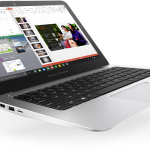
There are a lot of crucial tools that students need to invest in when they’re heading off to college. Textbooks are one of the first things that most of us think about, followed by home comforts for our dorm rooms. However, your laptop is where you’ll do the majority of the work for your degree. Laptops are a convenient way for students to access all the power of a computer in a portable package. However, choosing the right device isn’t always easy. That’s why it’s so important to start with a careful consideration of what you need from your tech.
Know Your Budget
If you’ve already applied for a private student loan to fund your education, you should have a relatively good idea of how much money you’re going to have to spend. Obviously, you probably won’t want to spend a huge chunk of your loan on your laptop, as you have other expenses to consider. However, if you have a part-time job too, then you might be able to spend a little extra. When you’re shopping around, try and look for laptops that can give you quality and performance, over those that have a few flashy extra features. Ask yourself what kind of programs and applications you’re going to use in your classes, and which laptops can offer those. For instance, Mac books are often the preference for more creative classes.
Prioritize Performance, and Battery Life
Once you know how much money you have to spend, there are two main features that should come first in any laptop decision. The first thing you’ll think about is performance. How you use your laptop will directly impact the kind of CPU you need. For instance, if you’re using a heavy-duty app like Adobe Premier, you’re going to need more computing power. On the other hand, if your college laptop is more for word processing and chatting to friends on social media, you don’t need to spend as much on performance. Make sure that your performance features balance out well with battery life too. You might be using your laptop in classes all day with no access to an outlet.
Extra Ports and Components
Finally, think about the ports and extra components in your laptop. While it’s tempting to get carried away looking at things like soundcards and keyboards, you’d be surprised how much you’re going to rely on ports to connect other peripherals. For instance, you might need USB ports so you can connect an external hard drive and save your work. Ethernet ports are also an excellent feature for students. They allow you to connect your laptop to a wired network. Some laptops overlook these ports because they assume, you’ll be using Wi-Fi. However, having an ethernet port is a good back-up strategy, just in case you’re working from somewhere with a bad connection. HDMI ports that allow you to connect screens for presentations and SD card reader slots may be useful too. If you get these three components of laptop shopping right, you should be on the right track to a great student computer.






